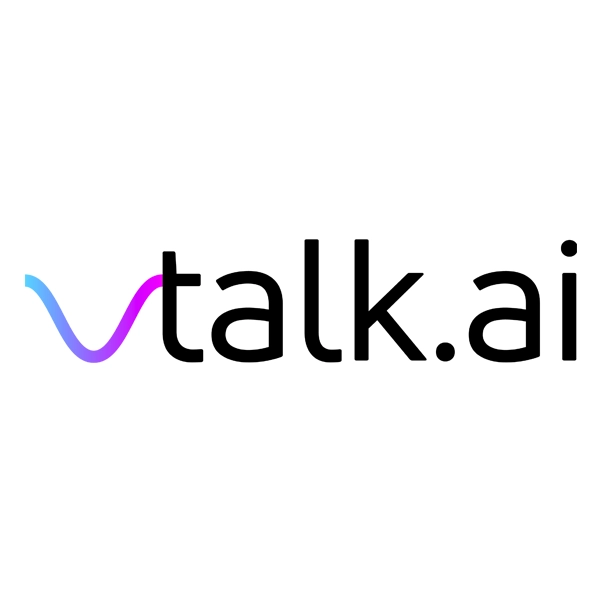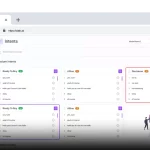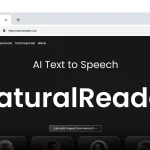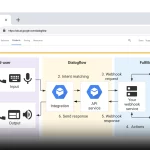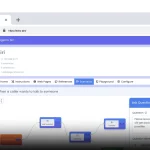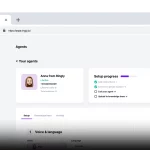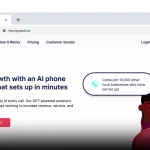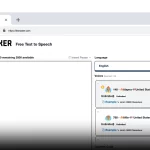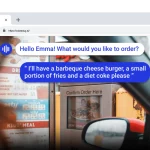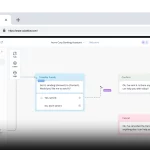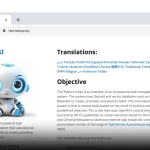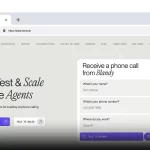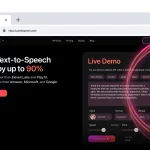Everything You Need to Know About 15.ai: The AI Voice Generator Discover everything about 15 AI, the groundbreaking text-to-speech tool. Learn about its features, development, challenges, and top alternatives for voice cloning and AI-powered content creation.

Low latency, highest quality text to speech API
Table of Contents
15.ai was a breakthrough in the field of text-to-speech (TTS) and speech synthesis, offering high-quality and emotive voices that captivated users across various platforms, especially content creators.
The project stood out for its real-time capabilities, generating character voices from media like video games and TV shows with remarkable fidelity, from SpongeBob to My Little Pony.
A Brief History and Development
15.ai was developed by an anonymous MIT-affiliated researcher under the alias “15.” This AI-powered TTS tool emerged around early 2020. It aimed to democratize voice cloning technology by offering a user-friendly and free platform for content creation and voiceovers.
The technology behind 15.ai employed deep learning and neural networks, particularly a proprietary system known as DeepThroat, which dramatically reduced the data needed to create high-quality voice clones. While traditional TTS systems like Google’s Tacotron 2 required hours of data, 15.ai could work with as little as 15 seconds of audio to produce high-fidelity results.
The project quickly gained traction within niche communities, such as 4chan’s My Little Pony Preservation Project, which helped refine and crowdsource datasets for training the AI. This project reflected 15.ai’s broader appeal to fan communities, meme culture, and social media creators who were eager to experiment with AI-generated character voices.
Features and Capabilities
15.ai was built to generate text-to-speech in real time, boasting high-quality character voices without requiring extensive training data. Users didn’t need to register or pay for access, making it highly accessible. This freeware tool could be used on platforms like Windows, macOS, and iOS, making it an appealing solution for both amateurs and professionals in content creation, podcasting, audiobook production, and even transcription. Its focus on automation and ease of use allowed creators to integrate it effortlessly into their workflows.
For instance, voice actors and content creators used 15.ai to dub or recreate iconic character voices, whether for fun, meme generation, or practical purposes like creating audiobooks or voiceovers for videos. The tool was often compared to other AI voice generators like Uberduck, and although 15.ai was free, the high cost of running the platform led to some sustainability issues.
Challenges and Controversies
Despite its success, 15.ai faced significant challenges. One of the major issues was the cost of keeping the project alive. Operating the platform required several thousands of dollars per month, covered initially through the developer’s personal funds after a successful startup exit. These financial constraints often led to periods of downtime as the developer worked to reduce operational costs and improve the platform’s efficiency.
Another area of controversy centered around the ethical implications of voice cloning. While 15.ai’s technology was remarkable, it raised concerns about the unauthorized use of character voices, which may have infringed on copyright protections. As the tool grew more popular, these concerns became more pronounced, prompting the developer to take a step back and re-evaluate the project’s future. In 2021, 15.ai went offline, leaving users wondering if it would ever return.
Leadership and Future Directions
The identity of the developer behind 15.ai remains unknown, but they are an MIT researcher who emphasized the open-source nature of their work and a desire to democratize AI tools. The focus was always on making AI voice synthesis available to those without the resources to hire professional voice actors, but the challenges of scaling the project have left the platform dormant for now.
There have been various discussions about potential alternatives to 15.ai, such as Uberduck, which provides similar AI-powered voice cloning services, albeit with different pricing models and platform features. Speechify is another popular tool in the realm of text-to-speech, with advanced features that cater to reading and podcasting use cases.
15.ai Alternatives
With the discontinuation of 15.ai, users have turned to several alternatives. Here are some of the best alternatives:
- PlayHT: PlayHT’s API delivers ultra-low latency with the industry’s best voices, so your content flows seamlessly, in real time. Whether it’s live narration or instant audio responses, PlayHT has you covered. Elevate your streams—try PlayHT text to speech API today and hear the difference!
- Uberduck – Known for its extensive library of character voices, Uberduck has emerged as a popular alternative, offering both free and premium tiers. It is widely used for content creation, voiceovers, and even AI-powered music generation.
- Speechify – Another great option for AI text and TTS, Speechify is known for its API integrations and high-qualityvoices. It supports multiple languages, including English, and is available on Apple devices like iPhones and iPads.
- Microsoft Azure Cognitive Services – Microsoft offers a robust text-to-speech tool through its Azure platform, designed for businesses looking for scalable solutions. It allows users to generate AI-powered voices for applications, podcasts, or media sources.
- Voicery – This AI voice generator specializes in creating human-like, high-fidelity voices with fine-tuned emotional expression. It’s popular in content creation and commercial applications.
- Descript – Primarily used for podcasting and video editing, Descript features a voice cloning tool called Overdub, which can mimic your own voice with impressive accuracy.
These platforms provide a range of features, such as text-to-speech templates, advanced customization, and APIintegrations, making them strong competitors in the space.
15.ai was a game-changing tool in the world of AI-driven voice synthesis, delivering high-quality character voices in real time and earning a dedicated fanbase among content creators and social media users. However, financial and ethical challenges have led to its hiatus, leaving the community eagerly awaiting updates on whether the project will be revived. In the meantime, tools like Uberduck and Speechify offer comparable solutions for those looking to leverage AI for text-to-speech functionality. Regardless of its future, 15.ai has left a lasting mark on the AI and voice cloning space, proving what can be achieved with cutting-edge AI technology and deep learning algorithms.
Can I still use 15.ai?
What is the best AI-powered TTS tool for content creation
Are there any legal risks with using AI voice generators?
Similar articles

DeepSeek-V3, R1, Coder: What’s the Differences?

DeepSeek R1
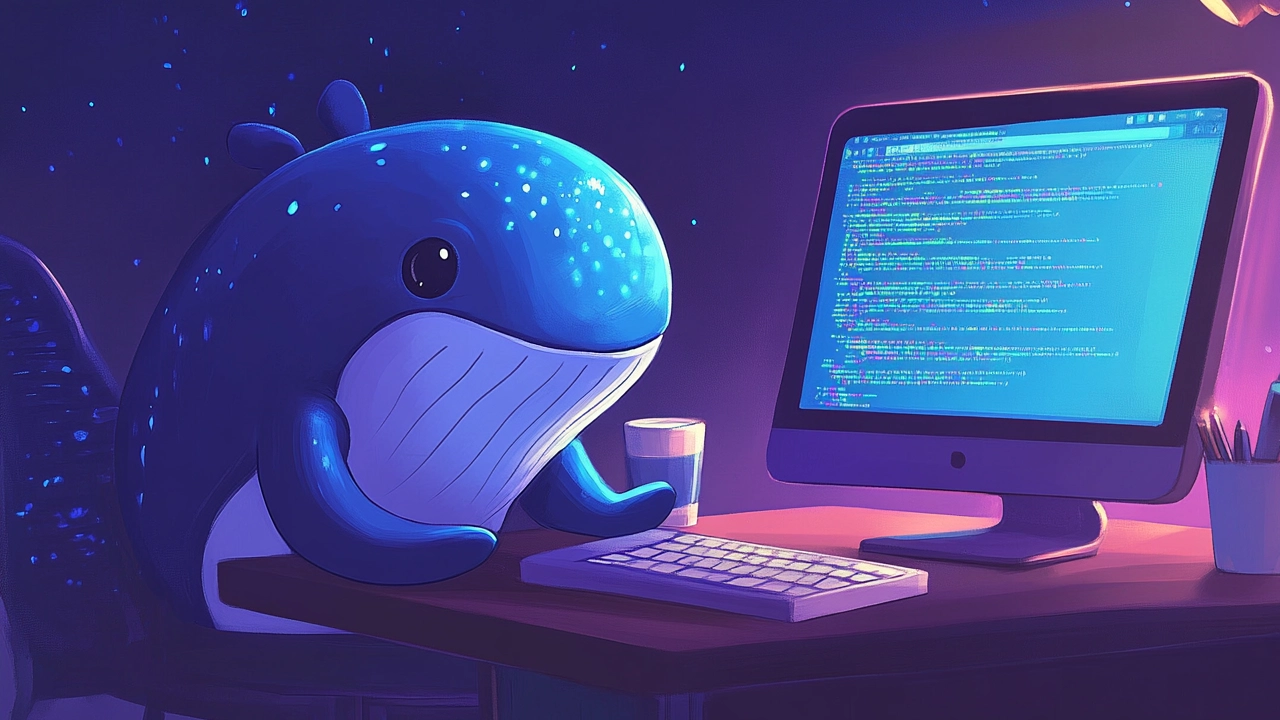
DeepSeek Coder: Get Started.

DeepSeek Pricing

Best AI Audio Cleanup APIs

DeepSeek vs Claude vs Llama vs ChatGPT

Free Text to Speech API: High-Quality, AI-Powered Speech Synthesis

Google Text to Speech API: A Step-by-Step Tutorial with Examples

How to Decrease Latency in Text to Speech APIs

Best Open Source Text-to-Speech API Free and yet, High-Quality

Best Text to Speech SDKs for High-Quality Voice Generation

Best Free Text-to-Speech APIs to Test

Deepgram Text-to-Speech SDK: A Complete Guide

Best Text to Speech JavaScript APIs

Websockets vs REST API vs API: Choosing the Right Communication Protocol for Your Web Application





 Clone your voice
Clone your voice





















































